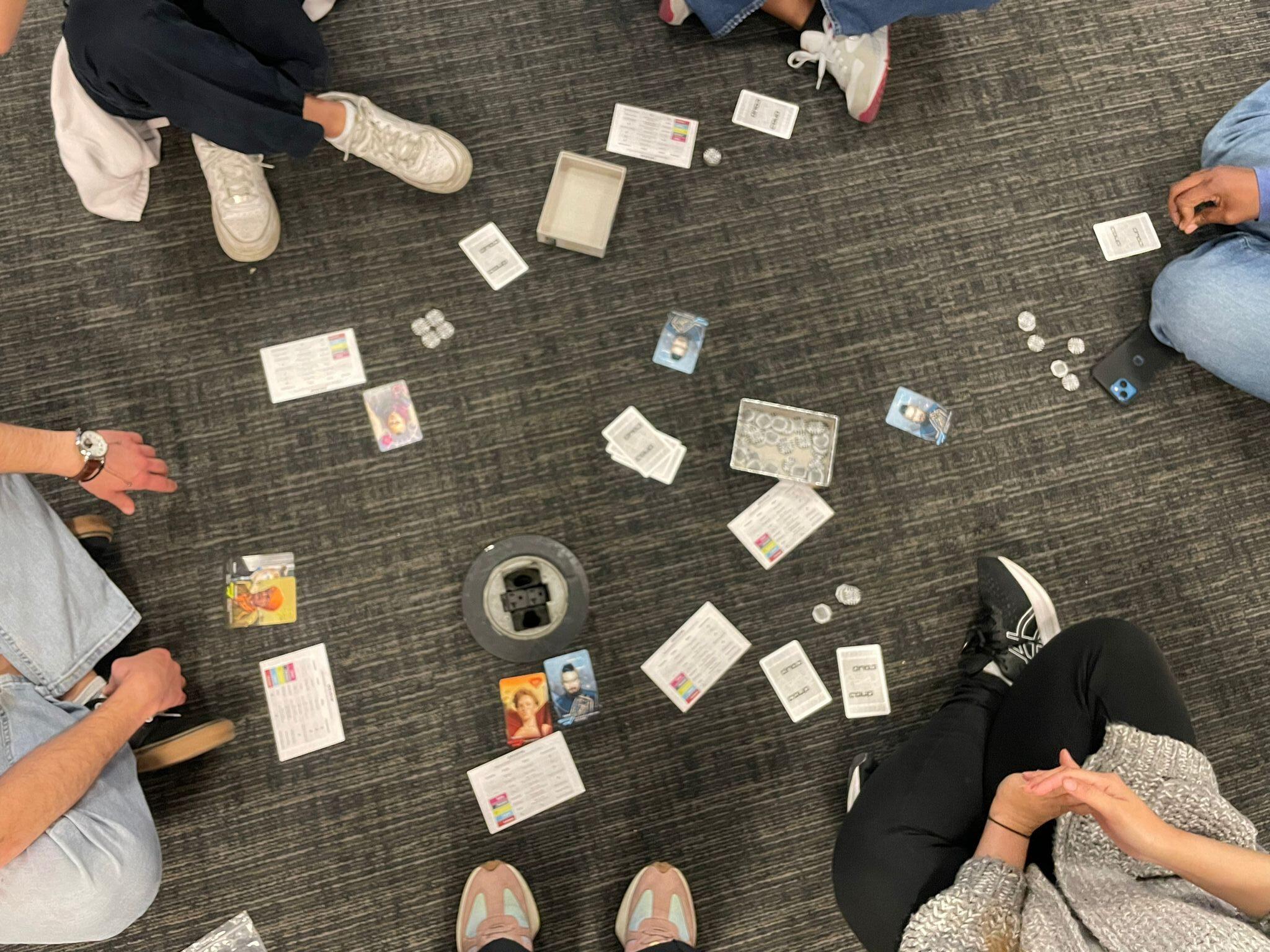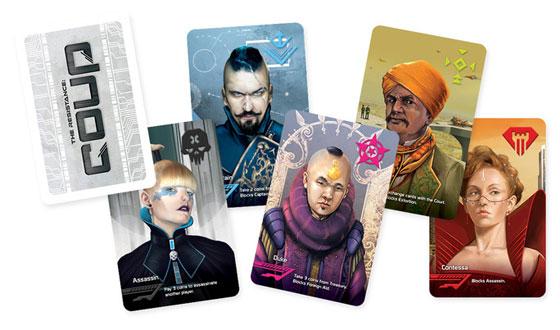For this week’s critical play, I chose Coup. The game was designed by Rikki Tahta and was released in 2012. The game that revolves around the theme of social deception. Each players represents a powerful faction, and everyone tries to win by being the last one standing. The game is played by 2-6 players.
The mechanics of the game, and besides the “rules” that are available here, players use a set of cards to perform various actions, such as assassinations, coups, recieve foreign aid and character swaps. There are alsocounteractions, where player get to block someone’s action. Player recieve two influence cards in the beginning of the game. Each character has certain abilities or actions it can do. However, no one knows what the other person really is, and so a person can try and bluff their way to winning. Basically, players outwit each other to gain the upper hand.
This game offers two main types of fun: challenge and fantasy. Players use obstacles to challenge each other, and they all play in this new world of fantasy. The powers each character has, the design of the cards and coins, and the narrative all add to the experience to accentuate the immersion in the game. It takes a lot of strategy, and possibly creating alliances for someone to win in Coup. Also, Coup has an element of luck, which -I find- makes the game more exciting.
In the design of the cards, they all follow the theme of a dystopian new place with powerful character illustrations. I appreciated that the cards are rich in regards to details of characters. Also, it only contains the essential information needed for player: the title of the character, and what actions/counteractions it affords. I also noticed that the actions information is repeated on the “Play Table” which summerizes all possible actions for all characters. I find the repeatition to make it easier to bluff when you can see everyone’s possible characters.
Coup differentiates itself from other games in its genre by placing a heavy emphasis on strategy and deception. Unlike other games that rely only on luck, Coup gives players the ability to – somewhat autonomously- control their fate through their actions and choices. When compared to games like Secret Hitler, I can notice that Coup does feel less complex and more straight forward. Also, I notice that it is more confrontational as players call each other out.
As with many games, abuses can appear in the game. The game’s mechanics encourages players to form alliances, which could mean that players outside the alliance might be abused. The game itself doesn’t have a way to handle that. However, as we were playing, Shana said: “everyone knows you don’t steal from the poor!“, which means that there are unspoken rules to avoid abuses. (she later proceeded to kill me though).
This brings me to one of the exciting elements in the game, the DRAMA. It was present throughout the game. Players could challenge each other (AKA call each other bluff) at any given moment. When this happened, one of the people involved will lose an influence card. In addiditon to that, there is an assassin character that could kill an influence. Finally, any player that collects 7 coins can throw a coup and make another player lose an influence card. This made us player mindful of not only the resources that we have, but the ones that other players have as well.
To make Coup better, I wonder if adding in additional mechanics that would force certain characters to work together to gain something. I believe it would be inetersting to have players bluff to get to do that, which could create conflict between them and make it more excited. I would imagine a rolled dice that initiates and act could be a way to do it.
A TWIST EXPERIMENT:
I played a couple of round to get to know that game. I then decided that in the next round I wasn’t going to see my cards. I mentioned that to other players. When the game first started, I decided to be a Duke. I acted like one until someone challenged me. Lucky for me, one of my cards was actually a duke. Yet, in the following rounds, I could see how other players were hesitant to call me out. I am not sure how to explain this, but for some reason, when they knew that I also do not know my cards, it made it look like I could actually be any character. I find this to be a paradox when even when I see my cards, I can also be anyone, yet they called me out more when I knew.





